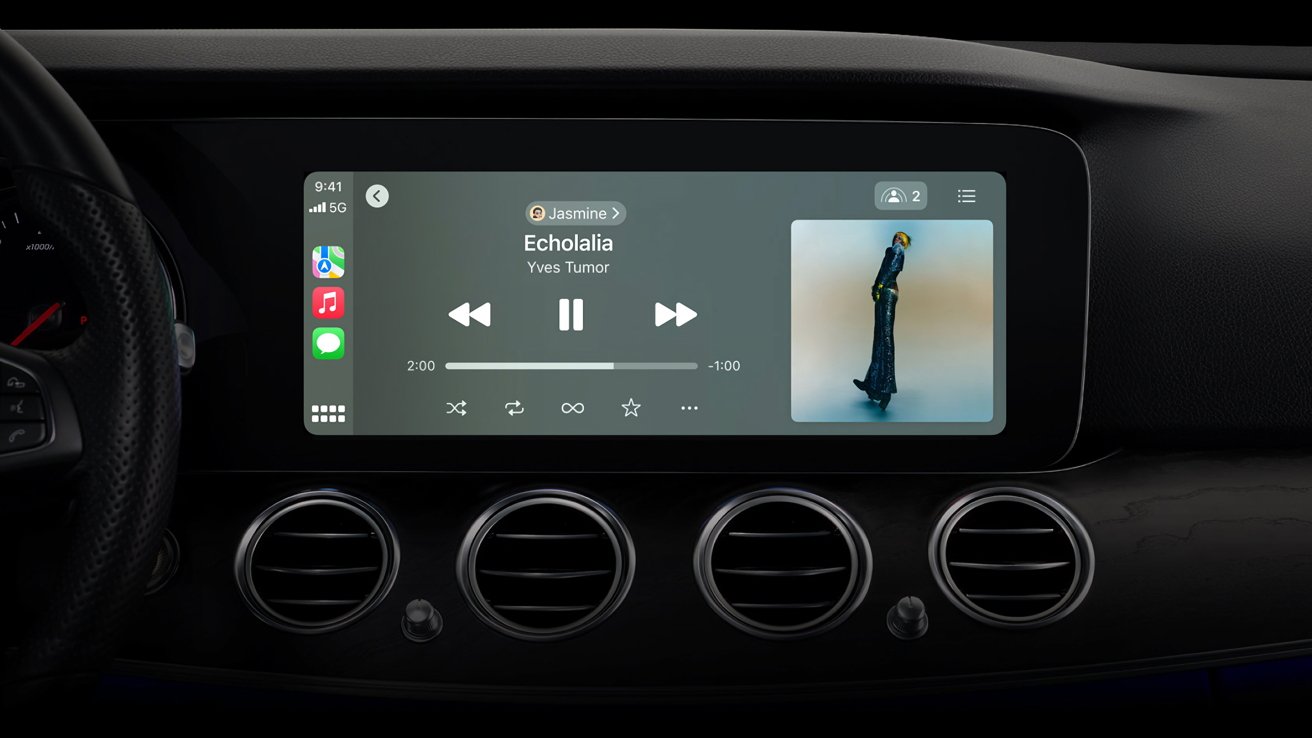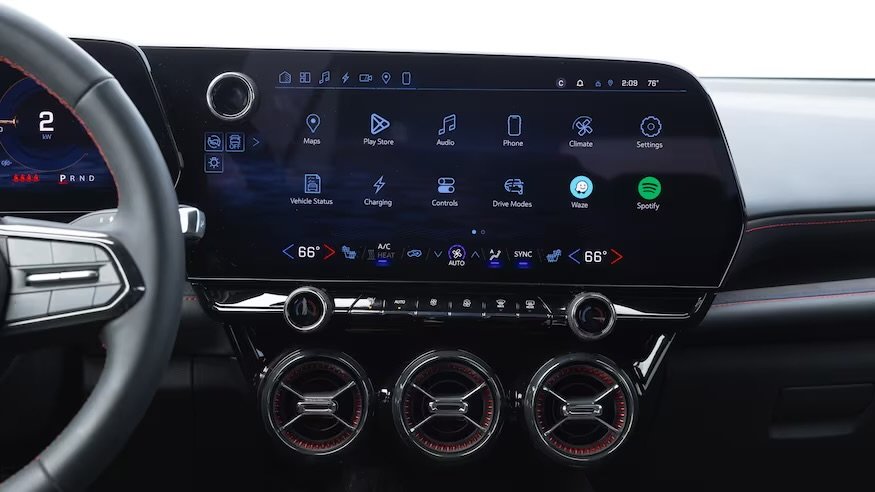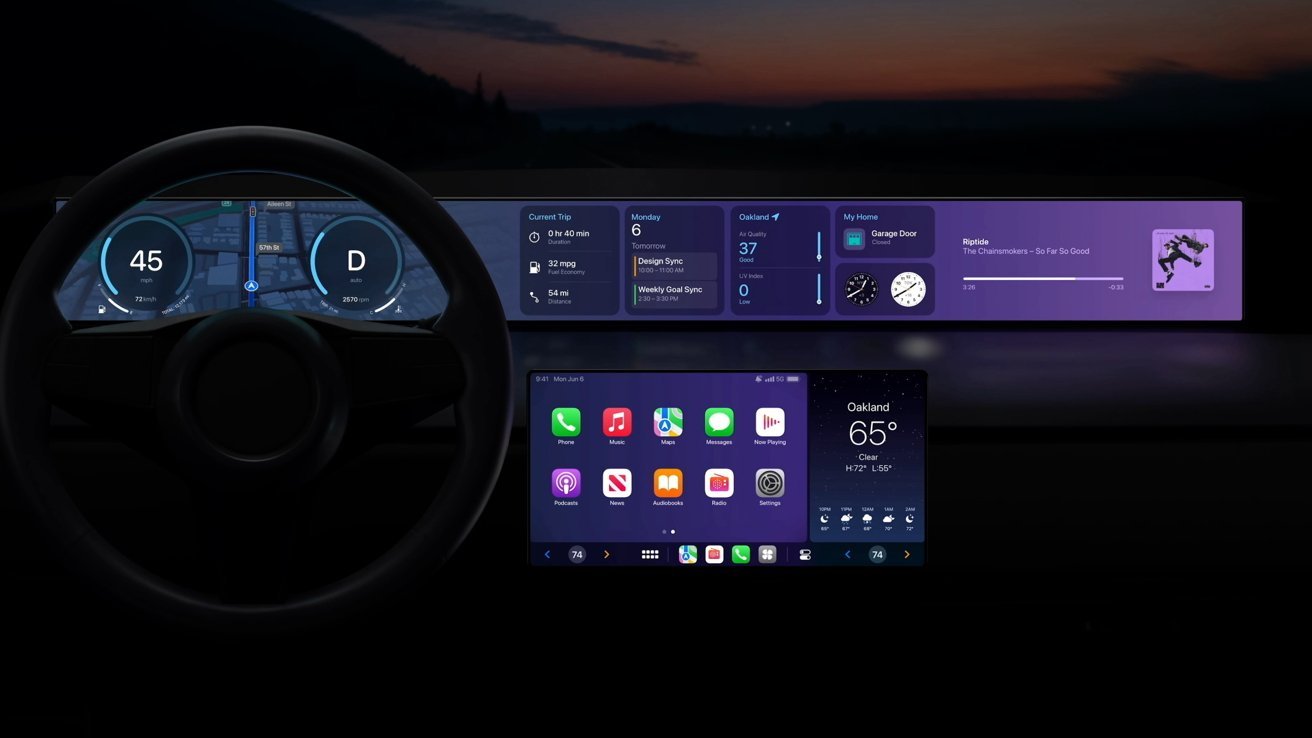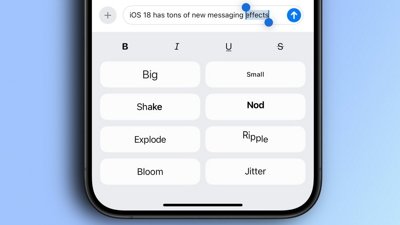General Motors leadership continues to poorly justify why Apple CarPlay has been abandoned, with driver safety being the latest excuse, rather than just admitting it's harvesting and monetizing user data.
According to a report from Motortrend, GM's head of product for infotainment, Tim Babbitt, blames safety for why CarPlay and other third-party systems needed to go. For some reason, Babbitt thinks that the systems provided by Apple and Google are unreliable and force users to seek out their device to complete a task while driving.
In an incredible stretch of logic, Babbitt claims GM's solution cuts the smartphone from the equation entirely, and is therefore safer.
When GM initially announced the move to ditch CarPlay, it was emphasizing in-car subscription services it could sell to customers as a way to drive revenue after a sale. The pitch didn't mention safety as an issue until now when the shift away from CarPlay is not only happening, it's incredibly controversial.
GM is abandoning user choice by implementing an infotainment system that requires users to opt into GM's custom Android-based operating system. Subscription revenue to premium services plus unprecedented access to user data, which can be monetized, drive GM's move.
Crying "safety" isn't only a joke — it's an insult to the industry.
GM's safety problem
GM's leadership seems to believe that an infotainment system divorced from the driver's device will promote safety when it is sure to do the opposite. Customers who can't access CarPlay or Android Auto will likely revert to using Bluetooth to control media or make calls.
In GM's "safer" world, where it controls the infotainment system and gets to rake in subscription revenue, drivers will need to fumble around for their iPhones to perform tasks that typically appear on a touch display. Thinking otherwise is naive.
A person's smartphone has their contact database, favorite apps, saved data like frequent locations, and much more. GM expecting people to upload their contacts and maintain a separate information database like it's 2006 is frankly out of touch.
GM's complaints are issues of its own making
The driving force behind Babbitt's comment about safety is the concept that Android Auto and CarPlay "aren't perfect programs." He points to stability issues that "manifest themselves as bad connections, poor rendering, slow responses, and dropped connections."
Apple CarPlay has existed since 2014. It runs as a program on top of the vehicle's infotainment system to bring apps and data from the iPhone to the vehicle's display.
CarPlay can be navigated through touch or, on older models, physical controls like knobs and buttons. The speed at which operations occur and how well touch input is received depends almost entirely on the manufacturer, not the iPhone.
We admit CarPlay isn't perfect. Older iPhones may run into performance issues over time, but connecting to CarPlay is hardly an intensive task. The fault usually lies in cheap processors driving the infotainment systems, terrible touch displays that fail to respond, or software that struggles to render CarPlay.
Instead of trying to make CarPlay and Android Auto run better by investing in better infotainment systems, GM has decided to build an entire software stack using Android. The only way this choice is viable is if GM, a car manufacturer, can figure out how to make a better software interface than Apple or Google.
Yes, with Google's help.
Surveys have shown that people searching for a new vehicle want CarPlay or Android Auto. The rare exception belongs to Tesla and a few other EV manufacturers, which have spent years developing a separate platform users trust.
Regardless of GM's excuse of the week, abandoning CarPlay is about money and has nothing to do with improving the customer's experience. Given that the common refrain lately from purchasers that CarPlay or Android Auto are effectively required in new cars, it seems like a bad gamble.
A statement from GM
After the Motortrend story, GM reached out to publications with a statement in an attempt to clean up what Babbit said. To be clear, Babbit said it, but GM is distancing itself from the comment with this statement.
We wanted to reach out to clarify that comments about GM's position on phone projection were misrepresented and to reinforce our valued partnerships with Apple and Google and each company's commitment to driver safety. GM's embedded infotainment strategy is driven by the benefits of having a system that allows for greater integration with the larger GM ecosystem and vehicles.
The point still stands, GM's move is clearly about control over user data and services. While Babbit's comment about safety aren't directly attributable to GM's official corporate stance, it was an attempt to explain away the move away from CarPlay. And the quote from GM is trying to spin it in a manner that's more palatable to them.
Updated December 13, 4:00 p.m. ET: Added the statement from GM.
 Wesley Hilliard
Wesley Hilliard



-m.jpg)






 Oliver Haslam
Oliver Haslam
 Amber Neely
Amber Neely
 Marko Zivkovic and Mike Wuerthele
Marko Zivkovic and Mike Wuerthele

 Andrew Orr
Andrew Orr
 Malcolm Owen
Malcolm Owen











36 Comments
I would never buy any future car without Apple CarPlay. Hope the GM CEO doesn't get too comfortable with his job.
I’m going to be in the market for a new car in the next couple years and this completely rules out any GM car.
We taking bets on how long it will be until they come crawling back?
It is no different than Apple constantly claiming “privacy and security” to lock down their platforms so that they can maximize profit.
When I went to the NY Auto Show last spring, I made a special point of going to the GM exhibit to tell them if they carried out this anti-CarPlay nonsense I’d never look at another GM car. He snottily asked me what I drove now. It’s an Audi but I’ve bought 3 new GM cars in my life, and always considered them. He was very dismissive and totally uninterested in hearing from me.